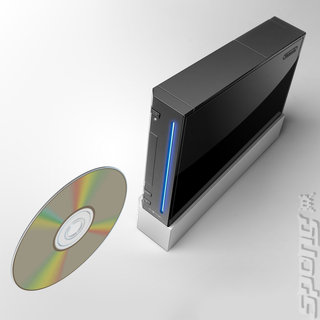Nintendo Asks US Government For Tougher Piracy Stance
Piracy cost placed at nearly a billion dollars

Nintendo of America has called on the US government to help take a more aggressive stance on piracy. It claims that the cost of piracy to Nintendo and “its publishers and developers” was close to a billion dollars last year.
The request has been put to the U.S. Trade Representative, which represents American trade interests on the international stage.
Nintendo highlights China as the primary source of manufacture for pirated games, while it points to Korea as the emergent leader in distributing illegal game files online. It also claims that Central and South America remain “saturated” with pirate Nintendo software and that Paraguay and Hong Kong serve as centres for shipment of such goods.
The company seeks “stronger laws in all countries against the circumvention of technological security measures”.
With regard to China, it states, “China must pursue criminal prosecutions against people involved in large-scale piracy operations.” It points out that, while over a million counterfeit Nintendo products were seized in China in the past year, there hasn't been a single prosecution.
Of Korea, the company says, “Nintendo supports the Korea-U.S. Free Trade Agreement, but suggests that it must be ratified immediately to address service providers who are profiting from the uploading and downloading of illegal Nintendo content. Korea is an important market for Nintendo, and Internet piracy is seriously affecting the growth of the video game industry in the country.”
Meanwhile, Latin America is identified as “a haven for piracy” and Nintendo calls for “significant changes to laws and to the enforcement regimes in those countries”.
“The unprecedented momentum enjoyed by Nintendo DS and Wii makes Nintendo an attractive target for counterfeiters”, Jodi Daugherty, Nintendo of America’s senior director of anti-piracy, said. “We estimate that in 2007, Nintendo, together with its publishers and developers, suffered nearly $975 million USD (£497 million) worldwide in lost sales as a result of piracy. Nintendo will continue to work with governments around the world to aggressively curtail this illegal activity.”
This comes not long after the R4 chip, which allows the play of pirated games on the DS, was highlighted as a major concern for the US – albeit by a statistic that we have since been told was falsely attributed to an ELSPA representative.
The request has been put to the U.S. Trade Representative, which represents American trade interests on the international stage.
Nintendo highlights China as the primary source of manufacture for pirated games, while it points to Korea as the emergent leader in distributing illegal game files online. It also claims that Central and South America remain “saturated” with pirate Nintendo software and that Paraguay and Hong Kong serve as centres for shipment of such goods.
The company seeks “stronger laws in all countries against the circumvention of technological security measures”.
With regard to China, it states, “China must pursue criminal prosecutions against people involved in large-scale piracy operations.” It points out that, while over a million counterfeit Nintendo products were seized in China in the past year, there hasn't been a single prosecution.
Of Korea, the company says, “Nintendo supports the Korea-U.S. Free Trade Agreement, but suggests that it must be ratified immediately to address service providers who are profiting from the uploading and downloading of illegal Nintendo content. Korea is an important market for Nintendo, and Internet piracy is seriously affecting the growth of the video game industry in the country.”
Meanwhile, Latin America is identified as “a haven for piracy” and Nintendo calls for “significant changes to laws and to the enforcement regimes in those countries”.
“The unprecedented momentum enjoyed by Nintendo DS and Wii makes Nintendo an attractive target for counterfeiters”, Jodi Daugherty, Nintendo of America’s senior director of anti-piracy, said. “We estimate that in 2007, Nintendo, together with its publishers and developers, suffered nearly $975 million USD (£497 million) worldwide in lost sales as a result of piracy. Nintendo will continue to work with governments around the world to aggressively curtail this illegal activity.”
This comes not long after the R4 chip, which allows the play of pirated games on the DS, was highlighted as a major concern for the US – albeit by a statistic that we have since been told was falsely attributed to an ELSPA representative.
Read More Like This
